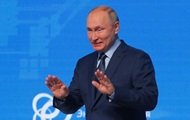The worst has been avoided in Sudan, but until when ? Tens of thousands of supporters of the restoration of real civil power, embodied by Prime Minister Abdallah Hamdok, marched this Thursday, October 21 in the capital Khartoum. They avoided crossing the procession, less supplied, of pro-army demonstrators, whose hero is General Abdel Fattah al-Burhane. The latter, often from the countryside, began a sit-in six days ago. and demand, them, the resignation of Hamdok, considered incapable of curbing the economic crisis.
Of Burhane, step down!
Where No turning back
for some, responded portraits of Prime Minister Hamdok crossed out with a red cross, for others.
Calls from officials on both sides arguably avoided confrontation. On the other hand, the rupture seems consummated between soldiers and civilians within the Sovereignty Council. This strange team was put in place in August 2019 after the fall of the dictator Omar al-Bashir, in power for thirty years, driven out both by an immense popular mobilization and the release of his “friends” from the upper military hierarchy.
A difficult sharing of power
Since then, General Burhane has chaired the Sovereignty Council, in particular in charge of security and diplomacy, while Prime Minister Hamdok, a former UN economist, manages day-to-day affairs. Initially well regulated, this sharing of power, “transitory”, gradually got out of order as we approach July 2022, when the presidency of the Sovereignty Council must return to a civilian.
This transfer of power worries the generals in more than one way. They see it as a threat to the stranglehold they maintain over many parts of the Sudanese economy (agriculture, telecommunications, mining resources, etc.).
Many Sudanese also demand that the army be purged of Islamist officers of the Bashir era, or that the perpetrators of a massacre during the revolution (200 dead in June 2019) be prosecuted, which General Burhane refuses in the name of the stability of the institution.
Worse probably for the military: part of the civilian camp is still considering extraditing the ex-dictator Bashir to The Hague where the International Criminal Court accuses him of crimes against humanity. However, a possible trial could splash generals still in place, starting with the eminence grise of Burhane, the powerful General Dagalo, head of paramilitary units accused of abuses in Darfur in the 2000s.
The soldiers ready for a headlong flight
To delay the transition to exclusively civilian power, as provided for by the July 2019 agreement, and to maintain itself until the hypothetical elections scheduled for 2024, the military seem ready to headlong forward. For several months, Abdel Fattah al-Burhane has been asking guardian of the Sudanese revolution
threatened by incompetence
of the Prime Minister. For the demonstrators who support the civilian government, the army is instrumentalizing the economic crisis, in particular the blockades against “Dear life”
in the east of the country, on the Red Sea coast, through which most of the products sold in Khartoum pass.
Same the quickly suppressed coup attempt led by officers of an armored division on September 21, became suspicious. Some see it as a stunt by Burhane and Dagalo to play saviors once again.
– .


